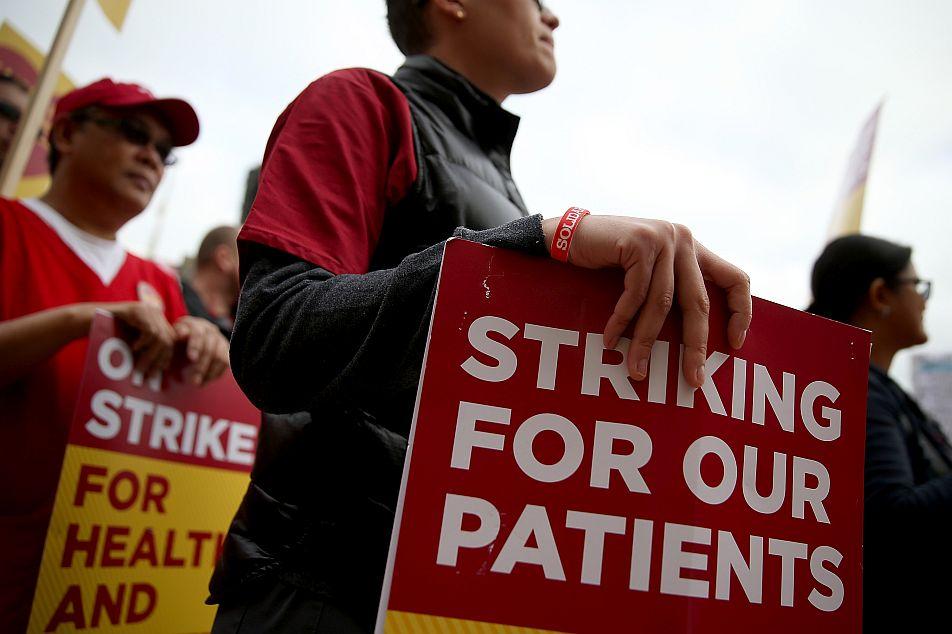The fight for dominance over the clean energy sector is heating up.
Countries are pitted against each other in the race to develop and produce clean energy and realize its massive profit potential—especially wind energy, which is currently the most advanced of all renewable sectors.
“From the U.K. to Denmark, China, New Jersey, and even Great Lakes states such as Ohio, regions are positioning themselves to capture winnings—and jobs—from the continued expansion of offshore wind installations and increased turbine manufacturing demand,” said researchers in the recent “Clean Tech Job Trends 2010” report.
Given the economic upheaval in the past few years and the associated job scarcity and high unemployment, the United States, Japan, South Korea, Germany, Japan, China, and other countries are trying to take the lead in the clean-tech industry, which in turn would result in bringing as many jobs as possible to a nation’s economy.
“Clean energy continues to fuel the plans of many cities, states, nations, investors, and companies as they look for the next wave of innovation and growth,” according to the Clean Tech report.
Job creation by the clean energy sector is no longer a myth, acknowledged Clean Edge Inc., a clean-tech global research firm. By evaluating job creation and job placement in the energy sector, Clean Edge ranked solar power as the top sector for providing jobs, followed by biofuel and biomaterial firms, smart grid and energy efficiency companies, wind power enterprises, and the advanced transportation and vehicle industry.
Researchers said in the Clean Tech report, “And on many counts, the clean-energy sector is delivering new job and economic opportunities, as it moves from a once-marginalized niche to an increasingly cost-competitive, mainstream offering.”
In the United States, the top regions for clean-tech jobs are Silicon Valley, closely followed by Los Angeles, Boston, New York, and Denver.
The Clean Tech report identifies jobs, associated salaries, and degree requirements. Average salaries for those without a college degree range between $33,600 and $65,700, with the latter earned by a broiler operator. Technicians can earn close to $50,000. For people with degrees, the salary range is between $57,100 and $106,000, with the latter for environmental engineering managers.
BP Solar recently closed its Maryland PV (solar photovoltaic) plant in March, eliminating 320 manufacturing jobs and took them overseas, despite having many contracts for its products in the United States.
Among others, BP Solar was awarded FedEx and Wal-Mart rooftop solar installations, as well as the largest solar installation for the New York Long Island Power Authority.
“By shifting our supply to a high quality, low cost supply base to serve both distribution customers and large scale projects, we have strengthened our position as a provider of competitive solar solutions with our offer of the highest lifetime value,” said Reyad Fezzani, CEO of BP Solar, in a statement.
Clean energy sector experts state that U.S. solar companies are shutting down operations in the U.S. and exporting jobs to other countries, not only to save labor and other costs, but also because of the lack of government subsidies, which they are getting in other nations. The jobs go mainly to Mexico and China, according to an article on the Green World Investor website.
“All U.S. solar companies have majority of their production being manufactured outside of the USA except for Energy Conversion Devices (ENER). Now ENER is also joining the rest of its peers as it cuts down jobs in the USA and increases production in Mexico,” according to an article on the Green World Investor website.
To cut costs, Energy Conversion Devices Inc. (ECD), a solar manufacturer, announced in August that it would eliminate 140 jobs at its Auburn Hill, Mich., facility, shifting production to Tijuana, Mexico.
“We are aggressively reducing our cost structure to operate more effectively in the highly-competitive, global solar market, and, through these actions, we will better utilize our existing capacity in Tijuana, without any additional capital costs,” said Mark Morelli, president and CEO at ECD, in an August press release.
The USW complaint was supported by a U.S. Senate letter, signed by 43 senators, and a letter signed by 185 members of Congress, to President Barack Obama, asking the sitting administration to accept the USW petition under Section 301 of U.S. trade law.
“Green jobs are key to our future. Right now, China is taking every possible step—many of them illegal under international trade laws—to ensure that it will control that sector. America can’t afford to cede more of its manufacturing base to China,” said Leo W. Gerard, international president of the USW, in a statement.
Last month, the Obama administration agreed to review the USW complaint and decide within a 90-day period if the complaint has sufficient merit and thus could be addressed through World Trade Organization dispute settlement.
“For those allegations that are supported by sufficient evidence and that can effectively be addressed through WTO dispute settlement, we will vigorously pursue the enforcement of our rights through WTO litigation,” said Ambassador Ron Kirk, United States Trade Representative (USTR), on the USTR blog.
Countries are pitted against each other in the race to develop and produce clean energy and realize its massive profit potential—especially wind energy, which is currently the most advanced of all renewable sectors.
“From the U.K. to Denmark, China, New Jersey, and even Great Lakes states such as Ohio, regions are positioning themselves to capture winnings—and jobs—from the continued expansion of offshore wind installations and increased turbine manufacturing demand,” said researchers in the recent “Clean Tech Job Trends 2010” report.
Given the economic upheaval in the past few years and the associated job scarcity and high unemployment, the United States, Japan, South Korea, Germany, Japan, China, and other countries are trying to take the lead in the clean-tech industry, which in turn would result in bringing as many jobs as possible to a nation’s economy.
“Clean energy continues to fuel the plans of many cities, states, nations, investors, and companies as they look for the next wave of innovation and growth,” according to the Clean Tech report.
Job creation by the clean energy sector is no longer a myth, acknowledged Clean Edge Inc., a clean-tech global research firm. By evaluating job creation and job placement in the energy sector, Clean Edge ranked solar power as the top sector for providing jobs, followed by biofuel and biomaterial firms, smart grid and energy efficiency companies, wind power enterprises, and the advanced transportation and vehicle industry.
Researchers said in the Clean Tech report, “And on many counts, the clean-energy sector is delivering new job and economic opportunities, as it moves from a once-marginalized niche to an increasingly cost-competitive, mainstream offering.”
In the United States, the top regions for clean-tech jobs are Silicon Valley, closely followed by Los Angeles, Boston, New York, and Denver.
The Clean Tech report identifies jobs, associated salaries, and degree requirements. Average salaries for those without a college degree range between $33,600 and $65,700, with the latter earned by a broiler operator. Technicians can earn close to $50,000. For people with degrees, the salary range is between $57,100 and $106,000, with the latter for environmental engineering managers.
Green-Tech Jobs Going Overseas
“Essentially, clean-tech manufacturing has run up against the same economic realities as countless industries that came before, from clothing to computer chips to cell phones: it’s very hard for the U.S. to compete with overseas labor costs, particularly in the developing world—as well as with heavy subsidies for clean-tech manufacturing in nations such as China,” said the researchers in the Clean Tech report.BP Solar recently closed its Maryland PV (solar photovoltaic) plant in March, eliminating 320 manufacturing jobs and took them overseas, despite having many contracts for its products in the United States.
Among others, BP Solar was awarded FedEx and Wal-Mart rooftop solar installations, as well as the largest solar installation for the New York Long Island Power Authority.
“By shifting our supply to a high quality, low cost supply base to serve both distribution customers and large scale projects, we have strengthened our position as a provider of competitive solar solutions with our offer of the highest lifetime value,” said Reyad Fezzani, CEO of BP Solar, in a statement.
Clean energy sector experts state that U.S. solar companies are shutting down operations in the U.S. and exporting jobs to other countries, not only to save labor and other costs, but also because of the lack of government subsidies, which they are getting in other nations. The jobs go mainly to Mexico and China, according to an article on the Green World Investor website.
“All U.S. solar companies have majority of their production being manufactured outside of the USA except for Energy Conversion Devices (ENER). Now ENER is also joining the rest of its peers as it cuts down jobs in the USA and increases production in Mexico,” according to an article on the Green World Investor website.
To cut costs, Energy Conversion Devices Inc. (ECD), a solar manufacturer, announced in August that it would eliminate 140 jobs at its Auburn Hill, Mich., facility, shifting production to Tijuana, Mexico.
“We are aggressively reducing our cost structure to operate more effectively in the highly-competitive, global solar market, and, through these actions, we will better utilize our existing capacity in Tijuana, without any additional capital costs,” said Mark Morelli, president and CEO at ECD, in an August press release.
Unions Fighting Foreign Subsidies
On Sept. 8, the United Steelworkers (USW) labor union filed a complaint against questionable Chinese trade practices in the clean energy sector with the Office of the United States Trade Representative, stating its position in a 5,800 page document.The USW complaint was supported by a U.S. Senate letter, signed by 43 senators, and a letter signed by 185 members of Congress, to President Barack Obama, asking the sitting administration to accept the USW petition under Section 301 of U.S. trade law.
“Green jobs are key to our future. Right now, China is taking every possible step—many of them illegal under international trade laws—to ensure that it will control that sector. America can’t afford to cede more of its manufacturing base to China,” said Leo W. Gerard, international president of the USW, in a statement.
Last month, the Obama administration agreed to review the USW complaint and decide within a 90-day period if the complaint has sufficient merit and thus could be addressed through World Trade Organization dispute settlement.
“For those allegations that are supported by sufficient evidence and that can effectively be addressed through WTO dispute settlement, we will vigorously pursue the enforcement of our rights through WTO litigation,” said Ambassador Ron Kirk, United States Trade Representative (USTR), on the USTR blog.



